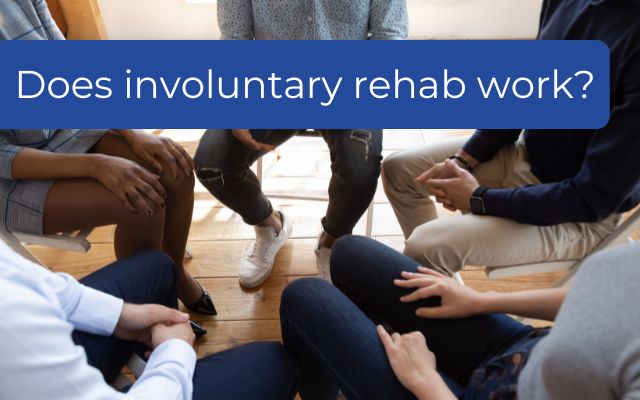
Involuntary Treatment Does Not Preclude Recovery
Is recovery possible for someone compelled into treatment despite initial resistance or lack of motivation?
Many people think that drug and alcohol rehabilitative treatment will only work if a client is willing and enthusiastic about going to rehab and getting sober and this begs the question, does involuntary rehab work? But evidence shows that low motivation, or just not being willing to go to rehab doesn’t determine whether treatment will be a success or not.
In official terms, this willingness or lack thereof is referred to as motivation. Low motivation refers to a client who does not want to go to rehab and is pressured or forced into treatment. High motivation refers to a client who voluntarily goes to rehab and has a high drive to change and get sober.
This is the third post in our blog series 20 things you should know about rehabilitative treatment: What works. This list was compiled by the European Association for the Treatment of Addiction, according to the latest evidence.

Does forced rehab work?
The short answer: Yes!
Many if not most people who are admitted to treatment are initially resistant or unwilling. Patients often only realise the severity of their addiction after they have been detoxed. Motivation levels to get well can change drastically while in treatment as many rehabilitation programmes help an addict or alcoholic face the reality of their situation by breaking their denial.
A study conducted in Sweden found that there was no difference in outcomes or treatment success between those coerced into treatment versus those who attended rehab willingly.
A number of studies have demonstrated that coerced clients generally do no worse in treatment than voluntary clients and in some cases do better. For example, research done on cocaine addicts found that those committed involuntarily had a higher percentage of days abstinent from cocaine than those who attended rehab willingly.










How are people nudged or compelled into treatment?
There are a number of ways people are coerced into going to rehab including pressure from work, from families or from social welfare services.
Families can organise an intervention and express their dire concern about the wellbeing of the individual with a substance problem. Research shows that pressure from an individual’s social network, particularly their family, has a significant effect on a client’s willingness to attend treatment as well as on the successful outcome of this treatment.
The most extreme measure used to get clients into treatment is through involuntary commitment via a Section 33 . This is a law in South Africa that allows a qualified party, usually a social worker, to request a Section 33 court order mandating a person to be committed to treatment for an alcohol or substance use disorder. This intervention is used in cases where an individual is clearly a risk to themselves or society. This law exists as an emergency measure to not only improve lives but save them.
Take action or wait in vain
The assumption that an individual needs to be enthusiastic or motivated to get sober for treatment to work is not only incorrect, it is counter-productive. Many individuals who need treatment are still in denial of their problem. Waiting for these individuals to volunteer to go to treatment is counter-productive: Lives and livelihoods may be lost while you wait in vain.
Does involuntary rehab work? The evidence suggests that it does
There are a number of ways to coerce a client into going to treatment including pressure from families and court orders.
If an individual’s life is in danger, don’t wait for them to become willing. Just because they don’t want to go to rehab it doesn’t mean they won’t get better in treatment. A little push to change can go a long way.
Do you think you are an addict or alcoholic? Contact us today for an obligation-free assessment.
Involuntary rehab can still lead to lasting recovery and improved wellbeing despite initial resistance with outcomes often matching voluntary treatment results. Changes team counsellors are here to help you.Involuntary Rehab Often Leads To Sustained Recovery








